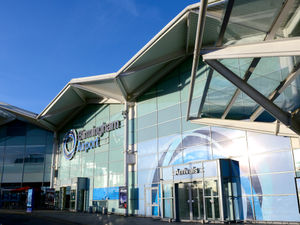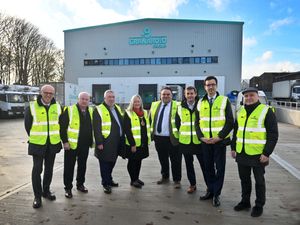New life for Woolies shops - Readers' poll
It was the store everybody knew and loved, a British institution dating back 100 years.
In its heyday, Woolworths was as much a feature of the UK high street as the pavements and lampposts themselves.
But it has now been five years since that fateful day the nation's favourite retailer went bust and had to close its 807 stores across the country, with the loss of more than 30,000 jobs in total.
The news was mourned by shoppers far and wide, while retail analysts warned it was a sign of worse to come as consumers began tightening their purse strings.
Unfortunately, they were proved right.
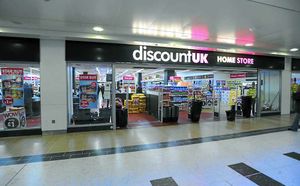
In the years that followed, countless other high-street giants have fallen victim to the recession, including icons such as Habitat and Jessops, to name but a few.
But now that the dust has settled since Woolworths entered administration in 2009, what has become of all its empty units?
Sadly across the country more than 100 of them remain vacant and a further 68 have been demolished.
Others, however, have become home to new shops, many of them bargain stores – showing how shoppers these days want to spend a penny, rather than a pound.
Low price bargains are their unique selling points, illustrating the UK shopper's ever-growing thirst for a deal that's not going to break the bank.
Budget supermarket Iceland has occupied the highest number of former Woolies premises nationally, with 59 to its name.
Close behind with 57 is Willenhall based Poundland, while in at third is 99p Stores, which has 47. Fourth is B&M Bargains, with 43.
It goes on and on.
But Will Roberts, of retail industry experts the British Retail Consortium said stores catering for those with more expensive tastes are also sprouting up all over the country.
He said: "Although a number of vacant stores have been taken over by discount traders in recent years, we are also seeing high end stores such as Hotel Chocolat opening up new premises.
"The news was fairly bleak last year, with vacancy rates increasing across the country while footfall in our High Streets and shopping centres dropped.
"However some stores have posted really strong Christmas trading figures."
The BRC's latest figures from October show 13 per cent of commercial properties remain vacant in town and city centres in the West Midlands and Staffordshire.
However any of the stores once adorned with Woolies' iconic red and white signs have been snapped up by other occupants.
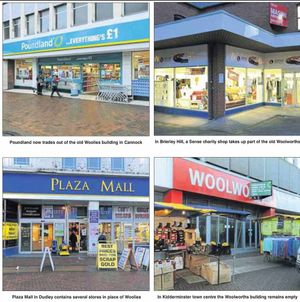
Before appointing administrators, the company had outlets in Wolverhampton city centre, Wednesfield, Bilston, Walsall town centre, Bloxwich, Blackheath, Bearwood, Wednesbury, Dudley, Halesowen, Brierley Hill, Kidderminster, Stafford, Lichfield and Cannock.
Of those 15 premises, two are now occupied by discount grocery and frozen food retailer Bargain Foods; another two are now run by rent-to-own retailer BrightHouse, where customers can bag anything from a television set to a three-piece suite in weekly payments; two are now Poundlands; with the remaining units home to Discount UK, Argos, Heron Frozen Foods, Tesco, a Plaza Mall, a YMCA charity shop, Sports Direct and B&M Bargains.
The final Woolies staff barely had time to pack up their belongings and leave the door, before some units were re-occupied, with others taking longer to attract new owners.
Bosses at the Mander Centre in Wolverhampton struggled to fill the vacant unit left by Woolworths, and for three years it sat empty.
The centre itself was built in the 1960s, but Woolworths had already been trading long before it opened.
The store became one of the biggest Woolworths branches in the West Midlands.
When it closed its doors, up to 40 workers lost their jobs. There was a glimmer of hope when businessman Tony Swannie, who runs the Aldridge based Plaza Malls, suggested he might open another Plaza Mall in the old store, but the deal fell through.
It was only in October 2012 that budget chain Discount UK stepped in to bring the shop back to life.
The store, which sells items priced from 28p to £25, created 40 jobs when it took over the vacant unit.
It did not take quite as long for those in Wednesfield and Bilston to be filled. In September 2009, the unit in Bilston was take over by catalogue shop Argos which had been relocated from 55-57 Church Street. Whereas in Wednesfield the discount grocery and frozen foods shop Bargain Foods took over the High Street unit.
Councillor Peter Bilson, Wolverhampton's regeneration chief, said the influx of new stores was good news for the people of the city.
"The loss of Woolworths was a nationwide issue and like many towns and cities we suffered as a result," he said.
"It obviously took some time to locate a replacement business to take over the Mander Centre store, but together with the managers there we have worked hard to secure a new user.
"The new store, Discount UK, increases the shopping choice on offer to the people of the city and its contribution is very much welcome."
In contrast to the situation in Wolverhampton city centre, the high street locations of many of the Woolworths stores in Sandwell were quickly pounced upon by other retailers.
The first to be taken over was in Blackheath, where Heron Frozen Foods transformed the High Street venue in May 2009.
In Bearwood, supermarket giant Tesco created 12 new jobs when it opened an Express store in the former Woolworths base in September 2009. Tesco bosses were inundated with job applications for the new Bearwood Road branch and interviewed a total of 70 people for the 10 customer services and two team leader posts at the store.
In June of that year, Caversham Finance Limited, which runs the rent-to-buy store Brighthouse, took over the Wednesbury's empty Woolworths shop on Market Place.
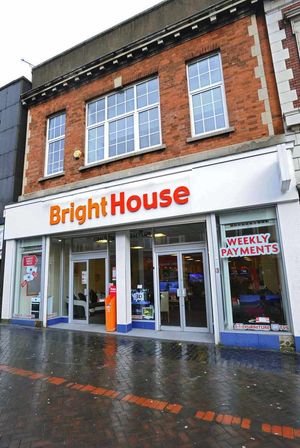
In every situation, however, there must be winners and losers.
The people of Kidderminster have not been aslucky as the rest, as their store has remained empty since Woolworths closed its doors in January 2009.
The faded store sign still remains above the unit door on Worcester Street, and there is no sign that it will be taken over any time soon.
It was in 2010, that Aldridge-based firm Plaza Malls expressed an interest in taking over the site, but boss Tony Swannie, who has branches in Dudley and Halesowen, backed out, claiming business rates were too high.
Talk of business rates would have probably confused Frank Woolworth – who founded the firm with his family name in Liverpool back in 1909.
It enjoyed a century of trading and earned a special place in the hearts of all Britons over that time. Many of its stores had never been used as anything else.
They had been purpose-built shops, created in prime locations, to bear the Woolworths brand, which welcomed a steady stream of loyal customers over a 50 year period, some even as long as 80 years.
When the company heaved its dying breath in January 2009, it was a shock to shoppers everywhere.
The Shop Direct Group bought the Woolworths and Ladybird brands, securing their futures online, but the high street will never look the same again.


